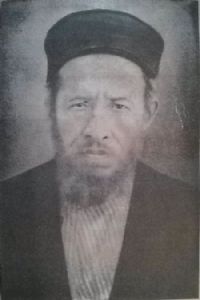A Short Tribute
Hacham Eliezer Rachamim Yedid Halevy was born to Rachel Biton and Hacham Yom Tov in 1885 in Aleppo, Syria. When he was three years of age, his family immigrated to the Land of Israel and settled in Jerusalem.
Hacham Eliezer Rachamim Yedid Halevy studied Torah with his father and in the Porat Yosef yeshiva, and continued his studies at the Rehovot HaNahar and Beit El kabbalist yeshivot.
Hacham Eliezer Rachamim Yedid Halevy married Malcah and the couple had several children, three of whom they named were Yaakov, Yitzhak and Abraham.
Hacham Eliezer Rachamim Yedid Halevy passed away on 24 Adar5694 (1934) and was buried in Jerusalem. His is the author of several books, including Devar Eliezer – on the commandment to be fruitful and multiply, Torah study and charity; Minhat Eliezer – a commentary on Rabbi Haim Vital's Etz HaHaim; Aryeh Sha'ag – a collection of moral aphorisms from the Talmud, the Midrash and the Kabbala, that includes prayers and supplications; Simchat Yom Tov – eulogies for his father, Hacham Yom Tov Yedid Halevy, Hacham Mordecai Lebaton's hymns and two of Rabbi Eliezer's sermons; and Shivchei MaHRa"M – the life and times of Hacham Mordecai Levaton.
